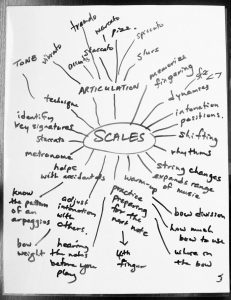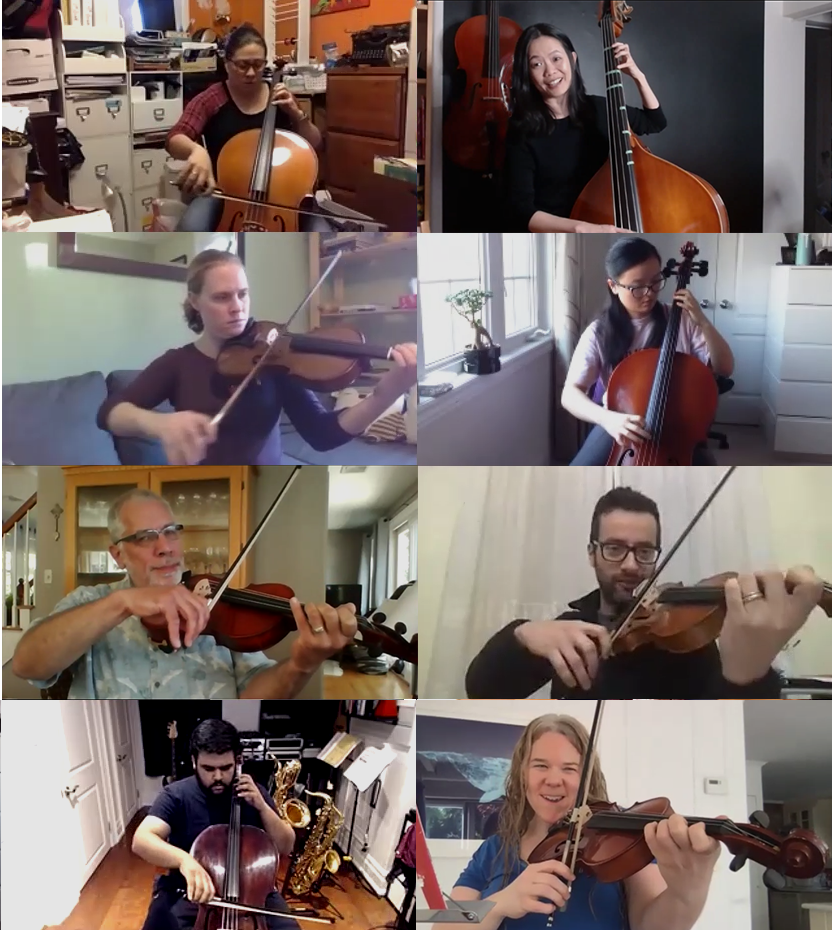Why do we practice scales? Have you ever given more than a moment’s thought to this? Sure, we practice scales to learn fingering, some rhythms, and to practice shifting. But there must be more to it, or the most elite players in the world wouldn’t continue to practice them.
Scale Memorization Routine
As part of my own New Year’s resolutions, I decided to establish some new routines in the classroom. One of them was to schedule the beginning of class as both tuning time and scale memorizing time. Notice I called it scale ‘memorizing,’ not ‘practicing’ time, so the students understand that they should be actively memorizing their scales. Setting regular evaluation dates helps them focus on memorization as well.
Anyhow, on the second day that we started this routine, some students were continuing to practice their music instead, having decided that they didn’t need to practice their scales because they were already memorized. That inspired me to stop the class and do a brainstorm on the overhead.
Why Should We Practice Scales?
I asked the students to think of reasons why we should practice scales. I told them that even the most elite violinists, violists, cellists and bassists in the world still practice their scales. Why?
At first, they could only think of only four answers and couldn’t think of any more:
- To memorize fingering
- To work on intonation
- To work on rhythms
- To work on shifting
I didn’t want to come up with the answers for them of course, so I asked them to brainstorm with their partners at least 5 other reasons why you would want to practice scales. In a few minutes, they came up with this:

An eye-opening activity.
Needless to say, it was an eye-opening activity for them. It was great to see that as they shared ideas with each other, they kept coming up with more. It was even eye-opening for me to see so many possible reasons for practicing scales displayed on the page.
Seeing the reasons for playing scales this way definitely helps elevate its importance in one’s mind. It may even make scales look exciting to play!
I highly recommend doing this activity with your student(s) when you want them to get more serious about playing scales. And helping them go through the process of discovering these reasons is a much more effective strategy than just telling them, or giving them a list.
I have been displaying our brainstorm on an overhead during their scale practice to help the students focus, and we are continuing to add things to it as we think of them. When I think we’ve nearly exhausted the list, I will share the results with you. Feel free to share with us some more reasons for practicing scales, and I’ll add them to the final copy.
Now, aren’t you excited about playing scales?
[Update: This activity inspired me to create Smart Bowing Exercises for Strings, a valuable and comprehensive resource for string players, unlike any other you’ve ever seen before!]



Leave a Reply